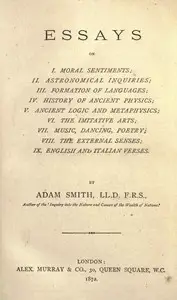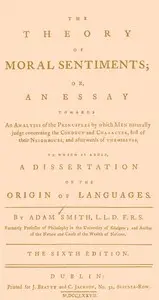"An Inquiry into the Nature and Causes of the Wealth of Nations" by Adam Smith is a foundational work in economic theory, written during the late 18th century. This treatise examines the fundamental principles that lead to a nation's wealth, focusing on aspects like labor productivity, the effects of the division of labor, capital accumulation, and the roles that government and commerce play in economic development. At the start of the text, Smith outlines the central themes and structure of his inquiry, emphasizing the crucial relationship between labor and the wealth generated in a society. He argues that the productive powers of labor can be significantly improved through its division, which allows individuals to specialize in particular skills, ultimately leading to increased efficiency and output. Smith illustrates this concept through practical examples, such as the pin-making industry, where the division of labor leads to a drastic increase in production capacity. The opening chapters set the stage for a comprehensive exploration of economic principles, laying a foundation for readers to understand the relevant mechanics that drive economic prosperity. (This is an automatically generated summary.)

An Inquiry into the Nature and Causes of the Wealth of Nations
By Adam Smith
Also known as: Wealth of Nations
Adam Smith was a Scottish economist and philosopher who was a pioneer in the thinking of political economy and key figure during the Scottish Enlightenment. Seen by some as "The Father of Economics" or "The Father of Capitalism", he wrote two classic works, The Theory of Moral Sentiments (1759) and An Inquiry into the Nature and Causes of the Wealth of Nations (1776). The latter, often abbreviated as The Wealth of Nations, is considered his magnum opus and the first modern work that treats economics as a comprehensive system and as an academic discipline. Smith refuses to explain the distribution of wealth and power in terms of God's will and instead appeals to natural, political, social, economic, legal, environmental and technological factors and the interactions among them. Among other economic theories, the work introduced Smith's idea of absolute advantage.
















